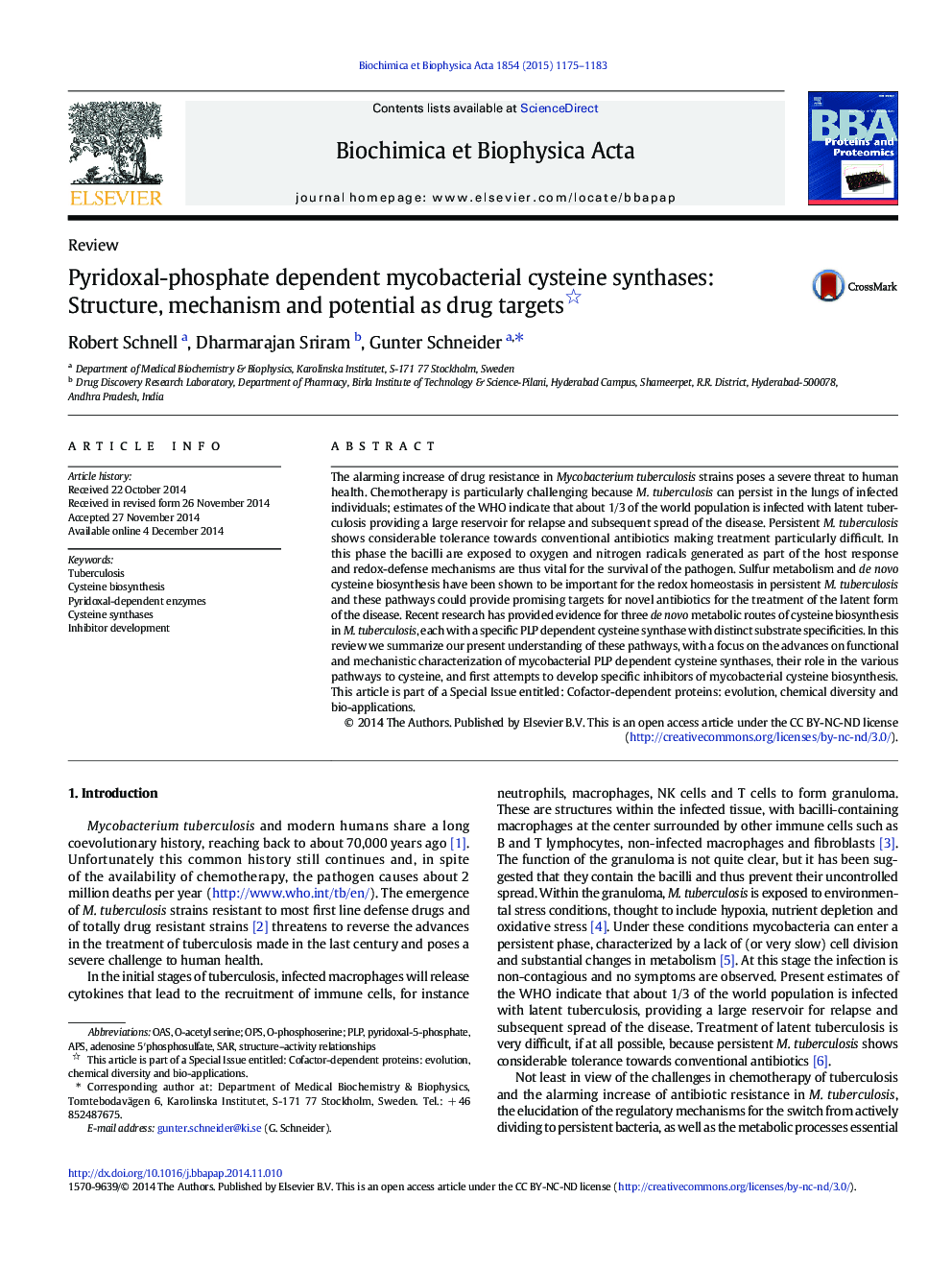| Article ID | Journal | Published Year | Pages | File Type |
|---|---|---|---|---|
| 10537131 | Biochimica et Biophysica Acta (BBA) - Proteins and Proteomics | 2015 | 9 Pages |
Abstract
The alarming increase of drug resistance in Mycobacterium tuberculosis strains poses a severe threat to human health. Chemotherapy is particularly challenging because M. tuberculosis can persist in the lungs of infected individuals; estimates of the WHO indicate that about 1/3 of the world population is infected with latent tuberculosis providing a large reservoir for relapse and subsequent spread of the disease. Persistent M. tuberculosis shows considerable tolerance towards conventional antibiotics making treatment particularly difficult. In this phase the bacilli are exposed to oxygen and nitrogen radicals generated as part of the host response and redox-defense mechanisms are thus vital for the survival of the pathogen. Sulfur metabolism and de novo cysteine biosynthesis have been shown to be important for the redox homeostasis in persistent M. tuberculosis and these pathways could provide promising targets for novel antibiotics for the treatment of the latent form of the disease. Recent research has provided evidence for three de novo metabolic routes of cysteine biosynthesis in M. tuberculosis, each with a specific PLP dependent cysteine synthase with distinct substrate specificities. In this review we summarize our present understanding of these pathways, with a focus on the advances on functional and mechanistic characterization of mycobacterial PLP dependent cysteine synthases, their role in the various pathways to cysteine, and first attempts to develop specific inhibitors of mycobacterial cysteine biosynthesis. This article is part of a Special Issue entitled: Cofactor-dependent proteins: evolution, chemical diversity and bio-applications.
Related Topics
Physical Sciences and Engineering
Chemistry
Analytical Chemistry
Authors
Robert Schnell, Dharmarajan Sriram, Gunter Schneider,
